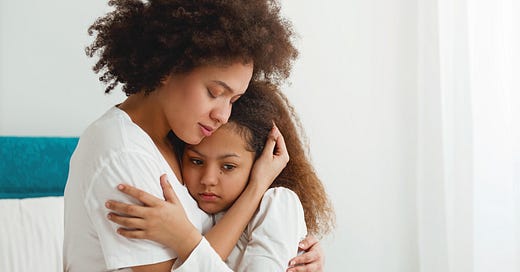Note: I published this newsletter immediately after the Uvalde massacre, and I make references to it throughout the post, but the advice I share here relates to talking to kids more broadly about mass shootings and gun violence.
I don’t normally share two free newsletters in two days, but I’ve gotten a lot of questions over the past 15 hours about how to talk to kids about what happened in Uvalde, and I want to share some thoughts. (Please note, too, that I can only drop everything to do things like this because of my paid subscribers — thank you, all of you.)





